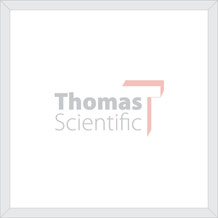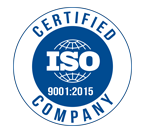Pluripotent Stem Cells
-
Human Cystinosis iPS Cells
Cellular Engineering TechnologiesCell line was derived from single, 14-year old male donor. Cystinosis is a genetic, lysosomal storage disease characterized by the abnormal accumulation of cystine. Mutuations in the CTNS gene that codes for cystinosin, a lysosomal membrane-specific transporter for cystine. Accumulation of free…
-
Human Foreskin Fibroblast iPS Cells
Cellular Engineering TechnologiesCells isolated from a human adult dermal cell sample and then programmed using our patented virus-free method using episomal DNA and our proprietary mix of vectors, excluding Myc and Lin28 transcription factors. The cell line was validated for pluripotency based on colony morphology, alkaline…
-
CHO K1 Cells
Cellular Engineering TechnologiesA K1 subclone of a parental Chinese hamster ovary (CHO) cell line has been optimized for protein production. The cell line has been adapted to grow under suspension and adherent cultured conditions. 500,000 cells per vial.
-
Human Multipotent iPS Cells
Cellular Engineering TechnologiesCells isolated from cord blood and which contain a lower level of MHC Class II molecules and then programmed using our patented virus-free method using episomal DNA and our proprietary mix of vectors, excluding Myc and Lin28 transcription factors. The cell line was validated for pluripotency based…
-
Human HepG2 Hepatocellular Carcinoma Cells
Cellular Engineering TechnologiesHepG2 is a human cell line isolated from a hepatocellular carcinoma of [donor information] with liver cancer. HepG2 cells are used in a wide range of studies, from the oncogenesis to the cytoxicity of substances on the liver These cells can be used for (i) the study of carcinogenesis as a…
-
Human HACAT Keratinocyte Cells
Cellular Engineering TechnologiesHuman keratinocyte cells isolated from a normal human foreskin. These cells are frozen at the first passage and exhibit robust growth characteristics in cell culture with fast doubling times and consistent morphology. Keratinocyte cells are widely used in iPSC reprogramming workflows, cell…
-
Human Gaucher's Type 1 iPS Cells
Cellular Engineering TechnologiesCell line was derived from a single male doner of African American descent diagnosed with Gaucher disease type 1. Donor was one year of age. Gaucher Type 1 is a genetic disorder caused by a defective enzyme called glucocerebrosidase (GCase), which breaks down a glucocerebroside a sphingolipid…
-
Chinese Hamster Ovary (CHO) K1 Cells
Cellular Engineering TechnologiesChinese hamster ovary (CHO) cells are an epithelial cell line that is widely used for biological and medical research and commercially in the production of recombinant therapeutic proteins. Other applications includes genetic testing, toxicity screening, cell viability and gene expression. Our…
-
Human Panc-1 Cells
Cellular Engineering TechnologiesHuman pancreatic carcinoma cells with ductal origin, which display an epithelial morphology. These cells are from a 56-year Caucasian male donor. This cell line grows adherently and displays robust growth characteristics. These cell types are routinely used to study the role of the intermediate…
-
Human CD34+ iPS Cells
Cellular Engineering TechnologiesCells isolated from mononuclear cord blood and then programmed using our patented virus-free method using episomal DNA and our proprietary mix of vectors, excluding Myc and Lin28 transcription factors. The cell line was validated for pluripotency based on colony morphology, alkaline phosphatase…
-
Human Niemann Pick Type C (Female) iPS Cells
Cellular Engineering TechnologiesTarget cell line was derived from an 8 year old female [and sibling [with NPC1 mutation]]. The affected donor had evidence of splenomegaly without neurological symptoms at time of presentation and subsequently received intravenous and intrathecal cyclodextrin. Vial contains 500,000 cells. …
-
Human Alzheimer's Presenilin-1 Mutation iPS Cells
Cellular Engineering TechnologiesCell line was derived from a single male done with Alzheimer's disease with onset occurring at the age of 45. The donor cells were collected via skin biopsy of the forearm ante-mortem. The cell morphology is fibroblast-like. Vial contains 500,000 cells. Shipped with dry ice. Mutations in the…
-
Human Niemann Pick Type C (Male) iPS Cells
Cellular Engineering TechnologiesTarget cell line was derived from an 11 year old man with NPC1 mutation. The donor was clinically affected with splenomegaly and supranuclear palsy and subsequently received intravenous and intrathecal cyclodextrin. Other subsequent features included uncoordinated movements and seizures. Vial…
-
Human Alpha 1 Anti-Trypsin Deficiency iPS Cells
Cellular Engineering TechnologiesTarget cell line was derived from an 57 year old female donor with two copies of the SERPINA1 gene that produces an abnormal type of Alpha-1 protein. Donor cells were isolated and then programmed using our patented virus-free method using episomal DNA and our proprietary mix of vectors, excluding…
-
Human Cystic Fibrosis iPS Cells
Cellular Engineering TechnologiesCell line was derived from a single, caucasian male donor diagnosed with Cystic Fibrosis. Cystic fibrosis is caused by the presence of mutuations of the gene encoding the cystic fibrosis transmembrane conductance regulator (CFTR) protein, which is involved in the production of mucus. This genetic…


















